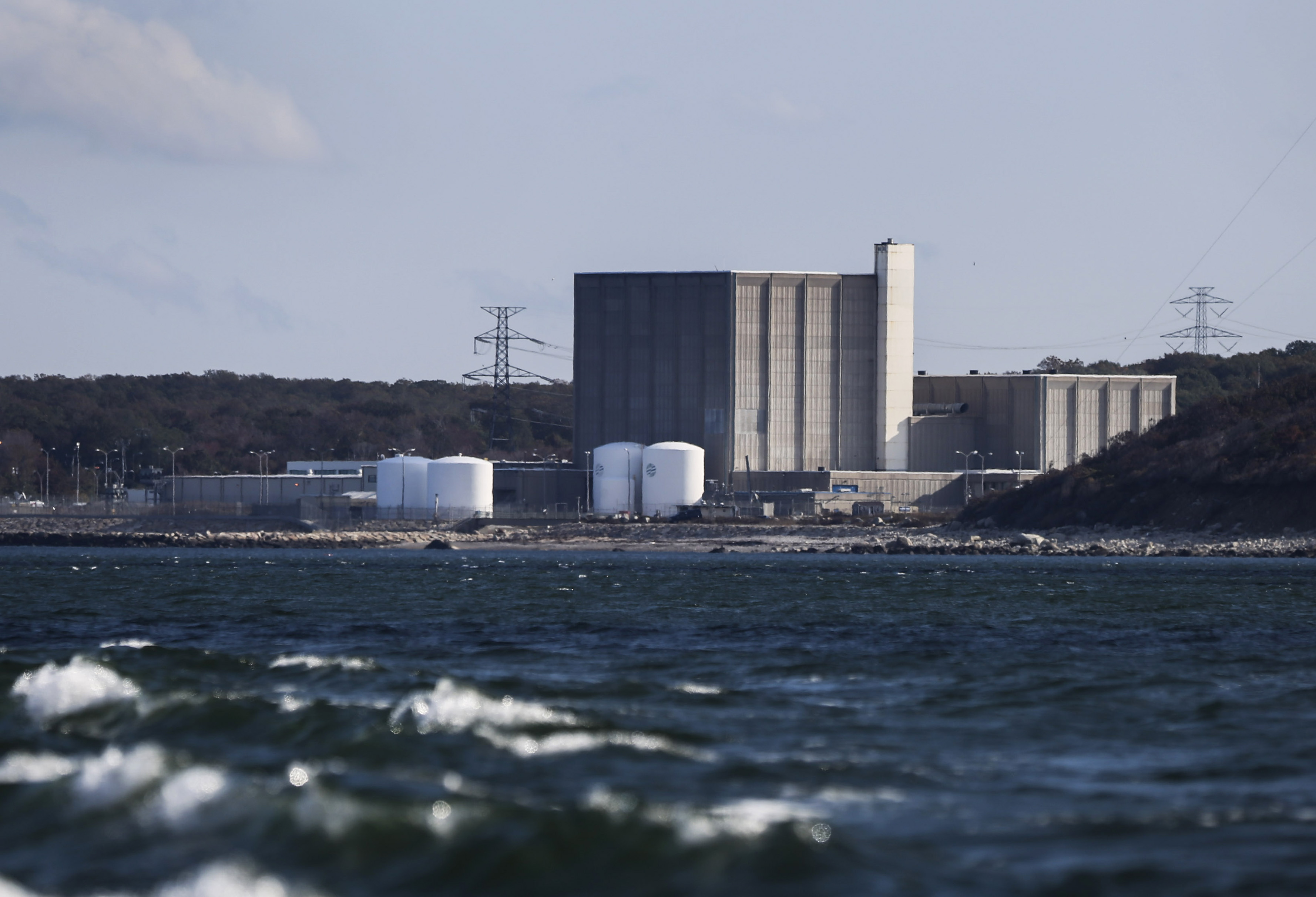Facing a crowd of about 100 environmental activists, the company working to decommission the Pilgrim Nuclear Power Station in Plymouth, Massachusetts, is still considering dumping radioactive waste into Cape Cod Bay as one of its options to get rid of the material.
A representative of Holtec International gave an update to the company's plans at a town hall meeting Monday evening.
Prior to the meeting, the activists held a rally outside Plymouth Town Hall. They showed up with signs and yelled chants, calling on elected officials to use all legal avenues to stop Holtec.
"Our voices are the only thing we have left. We've lost the money game," said climate activist Greg Mangan.
Activists fear the dumping of the nuclear waste will ruin the local ecology and economy.
"I'm just really getting tired of having to inherit problems from massive corporations who don't really care about the communities here," said Community Action Works Boston activist Sara Nelson.
Jim Lampert argued Holtec's motive to accelerate the decommissioning of the plant is profit.
"They know that dumping in the bay is the cheapest way to handle this," he claimed.
"If it is in fact illegal, we will not discharge the water," David Noyes, Holtec's senior compliance manager, said at the meeting.
The company said it has four options to dispose of the nuclear wastewater: evaporate it, move it to an offsite location outside of the state, hold the water on site to decay for decades, or discharge it into the ocean.
The latter, Holtec spokesman Patrick O'Brien said, is not the cheapest, but the safest option commonly used in the industry.
"When you do liquid discharges, it is diluted with seawater to non-detectable levels pretty quickly once it's released, and doing it in small batches is actually the safest manner," he said.
In the end, it may be a combination of some of the four options to get rid of the waste and decommission the plant by 2024, said O'Brien. It depends on wastewater test results obtained by both Holtec and the state through split samples. The sharing of those samples with the state was announced during the meeting.
"We look forward to the transparency and helping people understand really the facts over the emotional fear, you know, the science behind what actually this is," said O'Brien.
The next meeting will take place Nov. 28, when Holtec is expected to share historical and current wastewater data, while the decision of how to dispose of the waste could come sometime in the first quarter of next year.


